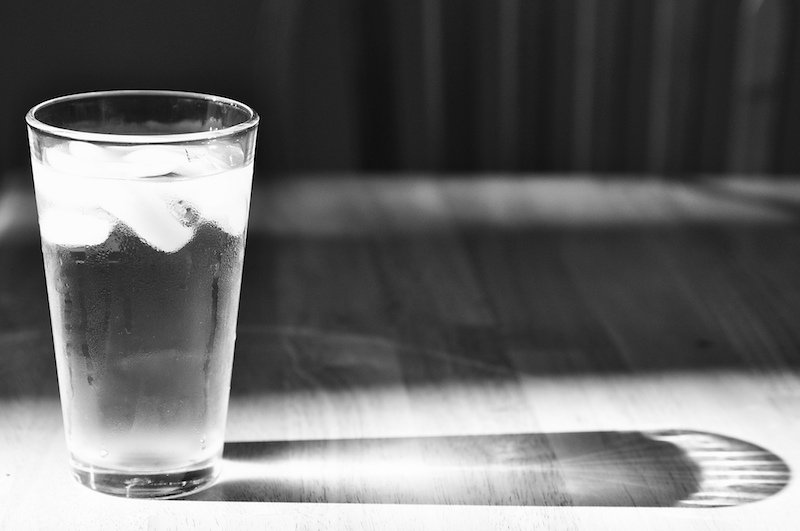Cape Town, South Africa is about to become the world’s first major city to run out of drinking water — unless residents and businesses continue taking drastic steps to reduce their water consumption.
In an effort to limit water use among residents, the municipal government mandated that Capetonians use no more than an 87 liters per day earlier this year. But residents failed to heed the rationing guidelines and Cape Town’s water supply continued to dwindle.
In response, the municipal government reduced the daily ration to 50 liters — about 13 gallons.
Take Action: Urge Governments and Businesses to Invest in Clean Water and Toilets
Global Citizen campaigns on ensuring everyone has safe, clean drinking water. You can take acton here.
As Cape Town’s dwindling water supply garners international attention, cities from Miami to Moscow face their own potential water catastrophes. That means more and more metropolises may be forced to pursue their own water rationing policies.
So, what exactly can you do with just 50 liters of water a day? Here are 6 ways to ration water
1// Shower twice a week — and for no more than 90 seconds
Amount of water used during 90-second shower: 18 liters
Amount left over: 32 liters
That’s the advice of the Western Cape province premier Helen Zille, who has been urging residents to ration their showers and treat oily hair as a “badge of honor.”
"No-one should be showering more than twice a week at this stage,” Zille said. “You need to save water as if your life depends on it because it does."
Read More: Cape Town Is About to Run Out of Water
For those who feel the need to rinse every day, Cape Town’s municipal government has encouraged people to limit their time in the tub to 90 seconds.

2// If it’s yellow, let it mellow
Amount of water used flushing: 9 liters
Amount left over: 23 liters
If it’s brown, flush it down.
Those are the official instructions issued by Cape Town’s water department, which advises residents and tourists to save flush #1 for when they go #2.
Anti-flush furor is swirling around the city, reaching residents on social media and bathroom stall doors alike. Even offices and hotels have begun incorporating the new policy.
In lieu of flushing, the city encourages individuals to spray a homemade mixture of vinegar and lemon juice to reduce odor.
Read More: Photos of Cape Town in Crisis as the City's Water Runs Out
"DON'T FLUSH THIS TOILET*"
— Water Action CT (@wateractionCT) November 16, 2017
These guerrilla #watersaving posters are going up in public toilets all over Cape Town. Download & print here: https://t.co/pKdx8kW8zr#SaveWater@CapeTown@CityofCTpic.twitter.com/BpHcl25B79
3// Wash your hands! — but don’t let the water run
Amount of water used handwashing: 2 liters
Amount left over: 21 liters
Amid the drought and water shortage, Cape Town has experienced an outbreak of listeriosis, an illness contracted through contact with contaminated soil, food, or animal feces. Health officials have also warned that water-borne illnesses like cholera, hepatitis A, and typhoid fever “likely will become more prevalent.”
In order to limit the spread of disease, residents must continue washing their hands, said Cape Town health manager Virginia De Azevedo, but only with a little bit of water.
"You can still wash your hands without wasting water," Azevedo said. “We are aware that cholera is a very big threat and that typhoid is a very big threat.”
Health officials in Cape Town have urged residents to maintain #hygiene standards (read the article: https://t.co/mZOW9f1q3M). Portable #handwashing devices, such as the @SpaTap, can help save #water and protect #health! Learn more about the SpaTap at https://t.co/RPiniONiz9.
— GHP (@HandwashingSoap) February 8, 2018
4// It’s still OK to drink 8-cups-a-day
Amount of water used for drinking water, tea, and coffee: 3 liters
Amount left over: 18 liters
Don’t fear dehydration and related illnesses when limiting your water consumption. The old adage about drinking 8-cups-a-day remains true even under Cape Town’s water rationing guidelines. Residents are even encouraged to drink more than that because eight cups equates to less than 2 liters of water.
Cape Town’s municipal Think Water website suggests that people drink 3 liters of water, coffee, and tea each day — more than enough to stay hydrated.

5// Keep boiling your rice and pasta
Amount of water used preparing food and cleaning up: 1 liter
Amount left over: 17 liters
Cooking requires relatively little water, so go ahead and prepare your favorite bowl of mac-n-cheese.
(Bonus points for using the left over water —aka gray water — to flush your toilet).
6// Clean your plates, not your car
Amount of water used cleaning up: 17 liters
Amount left over: 0 liters
You can still wash your dishes, clothes, and floors during a water shortage. But leave the dust on your SUV and the dirt on your driveway.
Even environmentally friendly dishwashers and washing machines can use up close to an entire day’s worth of water.
Instead, Capetonians have to become more efficient when washing dishes. Think Water recommends people perform one sink wash a day or run one economy load — about 29 liters of water — every three days. People can also shut off the water intermittently while washing, rather than let it flow continuously.
And since the most efficient washing machines use at least 26 liters of water per cycle, water rationers need to get used to wearing the same lightly soiled jeans for a while.
